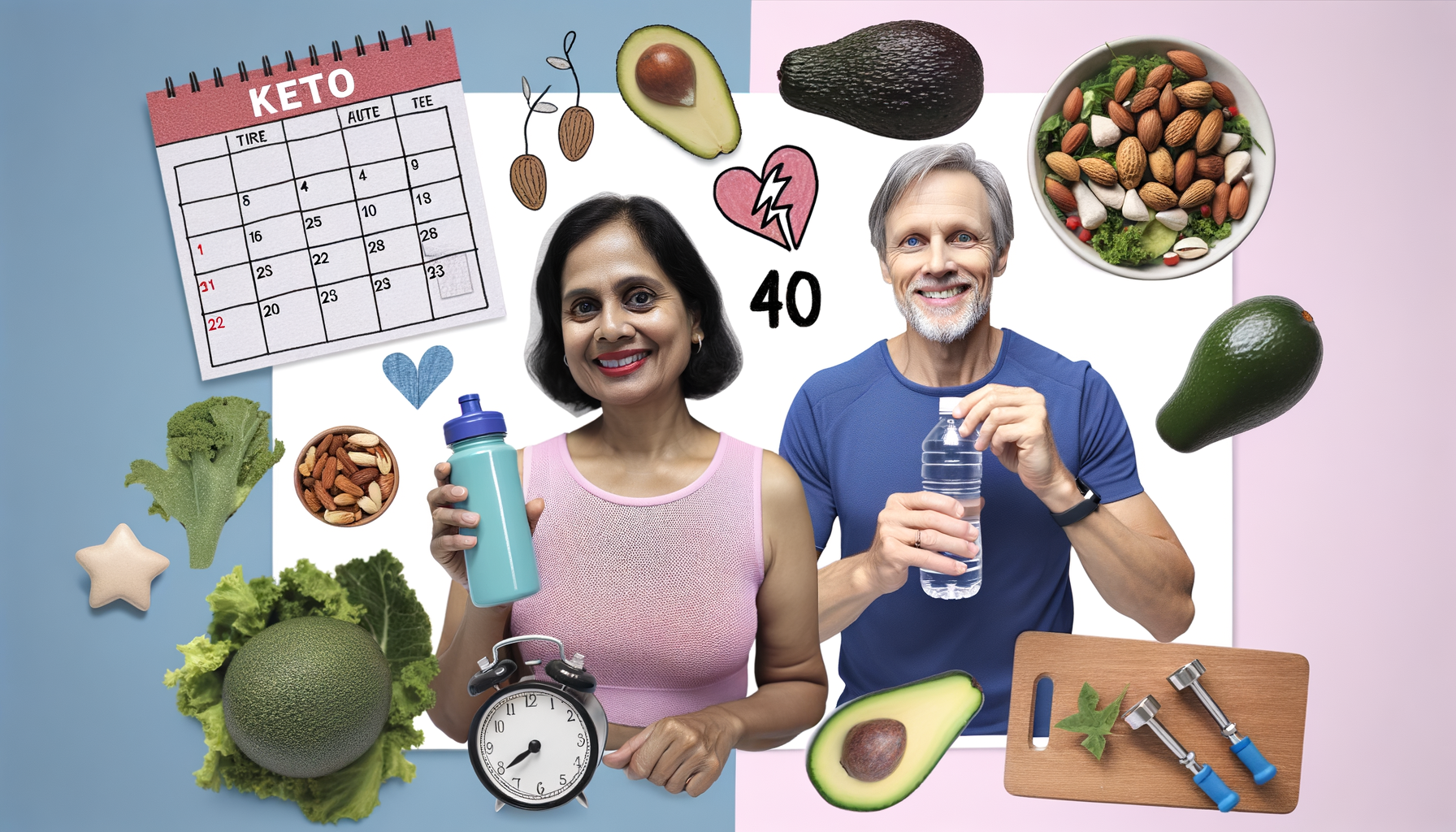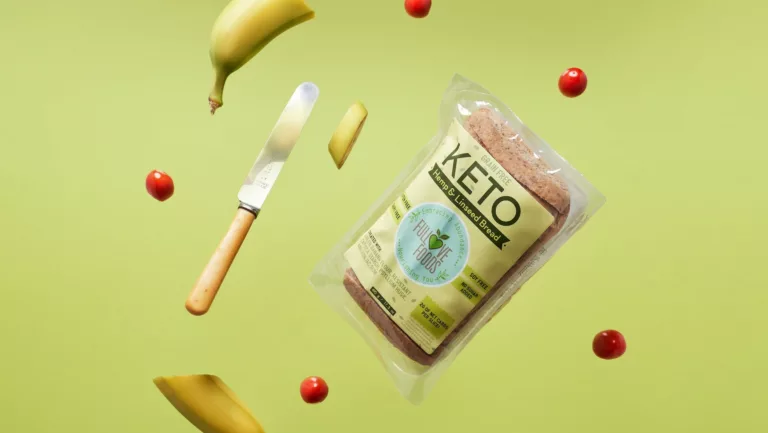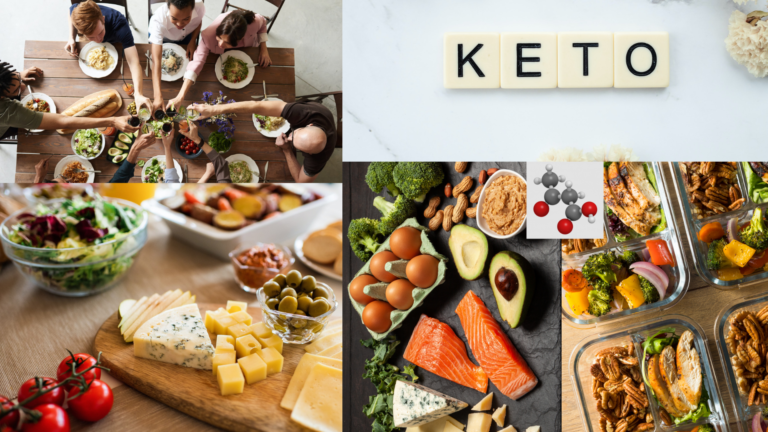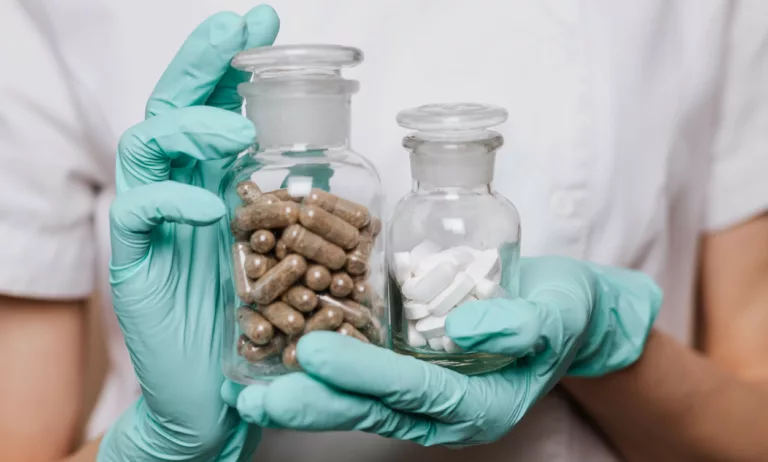Hydration is often overlooked, but it’s a critical component of any successful ketogenic diet, especially as you age. “The Role of Hydration in Keto After 40: Why It Matters More Than Ever” highlights the vital connection between staying hydrated and maintaining your health on keto after 40. As your body adjusts to a low-carb lifestyle, proper hydration becomes even more crucial to avoid common pitfalls like fatigue, muscle cramps, and stalled progress. In this article, we’ll explore why hydration is more important than ever on keto after 40 and how you can optimize your water intake for maximum results. Curious about the key to staying healthy and energized on keto? Keep reading to uncover the hydration secrets that can transform your keto journey.
Understanding Keto and Its Effects on the Body
The Ketogenic or “Keto” regimen, known for the significant influence it holds over weight loss and overall health, has seen a surge in popularity in recent years. This dietary scheme is characterized by high-fat, low-carb intake; its primary function lies in metabolic diversion from carbohydrates to fats and ketones – liver-produced compounds derived from fatty acids during glucose scarcity (the body’s primary energy source).
This unique metabolic condition termed ‘ketosis,’ propels the human body into an extraordinary state of fat-burning efficiency for deriving energy. Under this circumstance, fats are transformed into ketones within the liver that act as power suppliers to the brain. The Keto diet can trigger considerable dips in blood sugar levels along with insulin regulation. Alongside increased ketone production, these factors contribute to a plethora of health benefits such as weight reduction, enhanced cognitive functionality, and improved cardiovascular well-being.
However, achieving these potential health advantages requires individuals’ comprehensive understanding of how to sail through specific obstacles associated with the ketogenic regime like maintaining appropriate hydration levels.
The Significance of Water Consumption in the Human Body
As a mystery often referred to as life’s elixir, water unquestionably holds primacy in upholding our health. Its omnipresence is evident in its dominance within the human physique, constituting approximately 60% of total body weight. This indispensable chemical entity partakes in all cellular activities, ranging from digestion and absorption processes to nutrient transportation and temperature regulation.
The relevance of water outstretches merely physiological roles; it has direct implications on cognitive functioning and emotional well-being too. Persistent dehydration can muddle mental lucidity, concentration levels, equilibrium of mood states, and energy reserves. Moreover, water plays an instrumental role as a detoxification agent by expelling toxins via urine and sweat while ensuring ideal lubrication for our joints and tissues. Henceforth, the importance of sufficient hydration should not be trivialized or dismissed but rather meticulously observed and sustained.
The Increased Importance of Staying Hydrated as We Age
As the inexorable march of time presses on, our physical forms undergo a multitude of transformations that impact our body’s hydration equilibrium. Initially, there is an observable decline in the water content within us, predominantly due to a decrease in muscular mass and an ensuing escalation in fatty tissue. Concurrently, our thirst perception loses its sharpness, resulting in potential situations where we may not experience thirst despite our bodies desperately clamoring for hydration. Both these factors culminate into the constant requirement of stringent monitoring of water consumption as we advance in years.
Furthermore, it warrants attention that older adults could potentially face more pronounced consequences from dehydration. Effects can range from constipation to urinary tract infections; diminished cognitive abilities to heightened vulnerability towards heat strokes are also possible repercussions. On another note, H2O serves as an indispensable factor for retaining skin suppleness and warding off dermatological issues such as dryness or wrinkles. With advancing age comes a natural reduction in skin elasticity but optimal hydration could significantly retard this inevitable process.
In summary, with each passing year, the importance attached to maintaining adequate levels of hydration amplifies exponentially impacting every facet of health and overall wellness.
How the Ketogenic Diet Influences Hydration

Embracing the ketogenic diet, a journey that thrives on low-carb sustenance guides the body to burn fats instead of carbohydrates for its energy needs. This metabolic metamorphosis into ketosis instigates an extensive shedding of fluids and minerals, especially in the early stages. The scarcity of carbohydrates prompts the body to tap into its glycogen reserves rapidly – a process that ushers out water leading to increased urination and potentially tipping towards dehydration.
The hydration matrix in a ketogenic lifestyle is not solely influenced by elevated water loss but also by sodium requirements within our bodies. As insulin levels take a dip, kidneys excrete more sodium enhancing potential dehydration if less than recommended amounts are consumed. Moreover, indulging in foods rich in electrolytes becomes crucial as they replenish what’s lost through fluid excretion thereby affecting overall hydration levels directly.
Therefore, maintaining optimal hydration takes center stage when traversing through a ketogenic diet path; it ensures efficient bodily functions while preserving peak health conditions.
Challenges of Maintaining Hydration on a Keto Diet
Plunging into the labyrinth of a ketogenic diet unfolds an array of perplexities, chiefly revolving around hydration. A prominent conundrum emerges from discerning balanced water intake in correlation with substantial carbohydrate reduction. Our bodies serve as reservoirs for carbohydrates and their companion – water; hence, a sharp decline in carbohydrates inevitably heralds significant water loss, thereby exacerbating dehydration risks. It could be postulated that a ketogenic diet inherently disrupts the body’s hydration equilibrium, necessitating heightened vigilance to maintain optimal water levels.
Moreover, a ketogenic diet stimulates enhanced ketone production by metabolizing fats in the liver. Given our bodies are novices at handling this surplus compound, they instinctively seek expulsion through amplified urination frequencies. Unfortunately, frequent urination inadvertently results in the depletion of vital minerals and electrolytes – key players orchestrating numerous physiological functions. This predicament intensifies hydrational challenges while concurrently ensuring a sufficient supply of essential electrolytes on a keto diet; thus ratcheting up the complexity of maintaining hydration one notch higher.
The Connection Between Hydration and Weight Loss on Keto
Perplexity unfurls in the intricate connection between hydration and the ketogenic diet’s efficacy, particularly in weight loss. Water, a simple yet imperative element, is tasked with nourishing our cells by ferrying nutrients to them. It ensures a balance within bodily fluids while also regulating body temperature and aiding critical processes like digestion.
The ketogenic diet is an intriguing phenomenon that can morph your body into an efficient fat-burning entity when correctly implemented. As water forms the majority of our bodies’ composition, optimal hydration plays a significant role in maintaining a healthy metabolism – this being indispensable for weight loss.
A state known as ketosis occurs during adherence to a ketogenic diet; this metabolic phase sees the body utilizing fat for energy rather than carbohydrates. However, it’s essential not to overlook that water remains irreplaceable as it takes part in countless biochemical reactions necessary for proper functioning.
For keto dieters out there, staying hydrated isn’t merely about consuming liquids; it revolves around providing the body sufficient water amounts to smooth out fat metabolism and foster feelings of fullness—two factors leading ultimately towards weight loss.
In such circumstances where hydrating optimally becomes crucial, cells find themselves thriving better at their metabolic duties contributing positively to one’s odyssey towards shedding those extra pounds via the ketogenic lifestyle.
>>> Check this article to overcome a plateau in a keto diet
Common Hydration Mistakes Made on the Keto Diet
A frequently encountered misstep among those journeying down the path of the ketogenic diet is neglect in adequately replenishing their water intake. The drastic slashing of carbohydrate consumption in this dietary approach triggers a swift depletion of glycogen stores within our bodies, which are then expelled along with accompanying water reserves. This rapid exodus of hydration often catapults one into a state of dehydration unless mindful countermeasures are taken to replace lost fluids.
While immersed in this fat-burning regimen, overlooking hydration needs can precipitate fatigue and headaches, casting an overall pallor of discomfort over your well-being.
Yet another frequent lapse that occurs on this low-carb nutritional voyage involves electrolytes – specifically failing to restore them. These crucial elements – sodium, potassium, and magnesium – play pivotal roles in our bodily functions. They bid adieu through sweat and urine and hence need intentional replacement – even more so amongst individuals who adhere strictly to the keto guidelines.
Failure to fulfill this recompensation could mirror symptoms akin to dehydration. Henceforth it becomes imperative not just to quench thirst by chugging water but also to consume drinks or foodstuffs abundant with these indispensable nutrients. Hydration coupled with maintaining electrolyte equilibrium empowers the body to fully unlock all health benefits offered by the ketogenic diet.
Signs of Dehydration to Watch For While Following a Keto Diet
As you tread the intricate labyrinth of the ketogenic diet, it’s paramount to keep a vigilant eye on the possible flags signaling dehydration. This condition can cast long shadows over body functions and overall health. Often, symptoms such as weariness, unsteady equilibrium, and throbbing headaches raise their heads. The dryness that pervades your mouth or a sudden surge in thirst could be hinting at insufficient hydration levels.
In more acute situations, other telltale signs may surface like increased heart rhythm or more rapid breathing patterns. Even sunken eyes or an unusual state of bewilderment can indicate deep-rooted dehydration.
Furthermore, ketosis – this metabolic state that’s sought after by keto enthusiasts – might occasionally trigger amplified urination frequencies. This is inseparably linked to how our bodies incinerate stored carbohydrates which could inadvertently lead us down the path towards higher chances of becoming dehydrated.
Thus as a committed participant in keto dieting adventures, heightened mindfulness is crucial when it comes to scrutinizing your hydration status while keeping an open mind for any symptomatology pointing towards declining hydration standards. Infrequent trips to relieve yourself or urine adopting darker shades of yellow ought not to go unnoticed either; they are potential harbingers of dehydration too!
Therefore maintaining constant control over these markers is non-negotiable if one wants their voyage through ketogenic eating protocols to sail smoothly and healthily.
Here are the signs of dehydration to watch for while following a keto diet:
• Feeling unusually tired or experiencing fatigue
• Unsteady balance, often resulting in dizziness
• Frequent headaches that may be throbbing in nature
• Dry mouth and an increased feeling of thirst
• In severe cases, you might notice your heart rate increasing
• Rapid breathing patterns can also indicate severe dehydration
• Sunken eyes and confusion are other serious symptoms to look out for
Moreover, it’s important to understand how ketosis – the metabolic state aimed at by those on a ketogenic diet – can impact your hydration levels.
Key points include:
• Ketosis often leads to increased urination frequencies which could result in potential dehydration.
• This is due to our bodies burning stored carbohydrates during ketosis.
As someone committed to following a ketogenic diet, it’s crucial that you stay mindful of these potential issues:
• Monitor your hydration status regularly.
• Be aware of any changes in your usual bodily functions or feelings that could point towards declining hydration levels.
• Pay attention if you’re making fewer trips than usual to relieve yourself or if your urine becomes darker yellow; these are common indicators of dehydration.
Finally, remember that maintaining control over these markers is essential for ensuring a healthy journey through the world of ketogenic eating.
Practical Tips for Staying Hydrated on a Keto Diet
Maintaining an ideal hydration level whilst adhering to a ketogenic diet demands a continual, conscious endeavor. Yet, this task’s complexity can be significantly eased by incorporating some practical tactics. One such simplistic piece of advice is to declare water as your preferred beverage. Replace those high-sugar drinks and limit your intake of beverages like coffee and alcohol – both being diuretics that stimulate urine output thus potentially leading to dehydration. If you find the taste of plain water too monotonous, enhance its flavor with a slice of lemon, cucumber, or mint leaves. Another method that not only ensures sufficient hydration but also aids in feeling full is drinking a glass of water before each meal.
Parallelly augmenting the consumption of water, it is critical not to overlook the significance of restoring electrolytes when practicing a keto diet. As following such diets might trigger the rapid expulsion of both water and electrolytes from our bodies, it’s advisable to include foods abundant in crucial minerals like potassium, magnesium, and sodium within your dietary plan. These electrolytes play an indispensable role in maintaining body fluid equilibrium—opt for broths or homemade soups as they are excellent sources offering both hydration and required electrolytes simultaneously—an essential tip particularly for those indulging in regular physical activities would be considering an electrolyte supplement.
The Impact of Electrolyte Balance on Hydration
Electrolytes, bearing an electric charge, are minerals of critical essence for numerous bodily functionalities such as the regulation of water balance. Sodium, potassium, and magnesium emerge as significant players in the sphere of hydration-related electrolytes.
Sodium stands tall as a key electrolyte within extracellular fluid – the fluid that exists outside our cells. Its function is rather complex; it entices water into our bloodstream from our very own cells and tissues. Although sodium plays a crucial role in retaining water within us, we mustn’t overlook its potential negative impacts when in excess – bloating or even high blood pressure could ensue.
On the other side of this coin lies Potassium which primarily resides inside our body cells. It operates by ushering water into these cells from our bloodstream. Preventing dehydration is one such essential duty that falls under its mandate, thus underscoring its importance.
Then comes Magnesium – another vital piece in this puzzle known as electrolytes. This mineral facilitates various biochemical reactions taking place within us including neurotransmission and muscle contraction processes.
The equilibrium among these electrolytes cannot be undermined since any disturbance can potentially offset the body’s hydration state causing either dehydration or overhydration to occur. For individuals following a ketogenic diet path, maintaining optimal levels of these electrolytes becomes paramount due to the rapid loss of both water and electrolytes inherently linked with such a dietary plan thereby accentuating the need for careful replenishment.
Choosing the Right Drinks on a Keto Diet
In the labyrinth of the ketogenic diet, one’s mindfulness towards beverage consumption plays a pivotal role. This is due to the potential sugar and carbohydrate bombs hidden within typical drinks. Keto-friendly beverages are those which bow low in carbs, while also championing hydration support. Old favorites such as the humble water, soothing green tea, invigorating black coffee, and nourishing bone broth are sterling choices for preserving hydration whilst on keto.
These chosen fluids not only ensure hydration but also serve as carriers for numerous other health boons like antioxidants from green tea and collagen from bone broth.
Syncing with this narrative, some beverages offer to aid in maintaining a harmonious electrolyte balance within our bodies – an essential step to dodge the notorious ‘keto flu’. These rehydration potions or more commonly known as electrolyte drinks can be mighty beneficial if they trace back to natural and low-carb sources.
Drinks including coconut water often act as bountiful wells of natural electrolytes though it must be consumed judiciously owing to its inherent sugar content. In essence, when traversing through the keto dietary regime, always choose those drinks that contribute towards hydration promotion align with the body’s physiological operations, and remain confined within low-carb territories.
Special Considerations for Hydration on Keto for People Over 40
As one pivots into the fourth decade of their existence, they are met with a myriad of challenges. Especially when choosing to plunge into the Keto lifestyle, a diet that accelerates water expulsion from the body due to its low carbohydrate nature. This characteristic is particularly challenging for those in their 40s and beyond because as we age, our bodies naturally retain less water.
It’s crucial therefore that hydrating isn’t overlooked for this demographic on a Keto journey; it must be prioritized daily. Incorporate foods abundant in H2O such as cucumbers and zucchinis and indulge in Keto-friendly beverages that quench thirst without compromising dietary constraints.
Notably too is maintaining an equilibrium of electrolytes since this way of eating often results in diminished essential mineral levels like potassium, magnesium, and sodium – elements imperative for biological functioning. Consuming foodstuffs or drinks infused with these electrolytes could counteract dehydration exacerbated by aging.
With vigilant adherence to these strategies – ensuring hydration through high-water content victuals and balancing necessary minerals – pursuing keto can prove beneficial rather than detrimental for those over 40.
How Proper Hydration Enhances Your Keto Experience and Results
In the enigmatic world of the ketogenic diet, water emerges as an indispensable ally. Its role is not limited to mere hydration but extends far beyond that – it acts as a catalyst, augmenting your journey and amplifying your results on this distinctive dietary path.
As one embarks upon this new gastronomic adventure known as keto, the body undergoes a series of transformations. One such change is an evident depletion in water weight during the initial phases. Now enters our humble hero – H2O, replenishing lost fluids and facilitating fat incineration.
But wait! The saga doesn’t end here; its prowess unravels further benefits. Keeping adequately hydrated while adhering to a keto meal plan can be viewed as a two-pronged strategy with multifold outcomes – it not only enhances overall health but also paves the way for superior weight loss results.
The contribution of water in appetite regulation cannot be overlooked either – quenching thirst helps stave off hunger pangs and prevents excessive food consumption borne out of thirst rather than genuine hunger. It’s like having your personal pacifier at hand!
Moreover, let us not forget how hydration fuels metabolism and accelerates calorie-burning capabilities! An optimally hydrated body functions like a well-oiled machine – efficient and effective.
Another feather in its cap is maintaining electrolyte balance within our systems which becomes all the more critical when following ketosis-inducing diets; preventing adverse symptoms such as fatigue or headaches from hindering progress along this nutritional route.
So embrace ample water intake wholeheartedly —a simple yet potent maneuver bound to magnify both your ketogenic experience and resulting success exponentially.
In what way does the ketogenic diet function and what’s its impact on the human body?
The primary goal of a ketogenic diet, which is high in fat but low in carbs, is to push your body into a metabolic condition known as ketosis. This state causes your body to use fat as fuel instead of carbohydrates, potentially leading to weight loss and other health advantages. However, it may also affect hydration and electrolyte balance which need careful management.
Why is imbibing water so vital for our bodies?
The role of water consumption cannot be overstated when discussing overall health. It aids digestion processes, helps absorb nutrients efficiently, and controls bodily temperature while promoting cellular health. Without enough water intake, our bodily functions might face significant setbacks.
What effect does the ketogenic diet have on hydration levels?
When you’re following a ketogenic diet plan, there’s an increased tendency for your body to lose both fluids and electrolytes more swiftly due to carbohydrate reduction. If not monitored properly this can cause dehydration; consequently emphasizing the importance of adequate fluid intake during such diets.
What are some potential obstacles while managing hydration during a keto diet?
Challenges could include frequent urination, facing risks associated with electrolyte imbalance or simply forgetting to drink owing to lowered thirst sensation.
Can maintaining proper hydration influence weight loss whilst adhering strictly to a keto regimen?
Indeed, optimal hydration greatly influences weight reduction success within any structured Keto regimen. Besides aiding nutrient absorption through efficient digestion, it helps ensure maximum benefit from consumed food. Additionally, drinking recommended amounts of water often curbs unwanted hunger pangs thus maintaining energy equilibrium.
Are there common errors committed regarding fluid replacement during Keto?
Yes indeed! Notably, these include insufficient plain water intake and overdoing caffeinated/alcoholic beverages without balancing them out with necessary rehydration.
What symptoms of dehydration should one be wary of during a keto diet?
Look out for excessive thirst, reduced frequency of urination, dark urine coloration, fatigue, dizziness, and confusion.
How can I manage to stay hydrated while on Keto?
Maintain regular water intake, minimize consumption of dehydrating drinks such as alcoholic beverages, and ensure sufficient electrolyte replacement via food or supplements.
Why is balancing electrolytes so crucial to maintaining hydration levels?
Electrolytes like sodium, potassium, etc. play vital roles in retaining body fluids thus helping maintain hydration. During a Keto regimen, these may get depleted swiftly leading to potential dehydration if not replenished appropriately.
What kinds of beverages are permissible during the ketogenic diet?
While plain water should remain your go-to drink, options like unsweetened tea varieties, coffee, and bone broth along with occasional low-sugar/sugar-free drinks could also be included.
Does age over 40 bring special considerations while following the ketogenic diet?
Indeed! As we age our bodies naturally tend to fluid loss. Thus maintaining adequate hydration levels becomes even more important for those above 40 years to prevent dehydration and balance electrolyte concentration effectively.
Can optimal hydration lead to enhanced results from my keto experience?
Absolutely! Proper focus on hydration boosts overall well-being by enhancing energy levels and cognitive functions. This effect coupled with better digestion efficiency and nutrient absorption will ultimately boost the effectiveness of your Keto plan enabling weight management goals.
References:
- Pubmed: Loss of weight, sodium and water in obese persons consuming a high- or low-carbohydrate diet, Ann Nutr Metab. 1981;25(6):341-9. doi: 10.1159/000176515
- How much water should you drink on keto?





